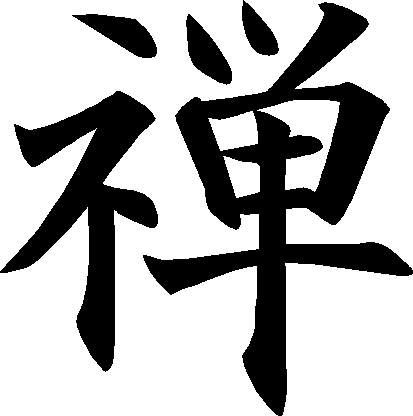The first fold of the Eightfold Path, Right View, is sometimes translated as Right Understanding and is explained by many commentators to mean that one has Right Understanding if one understands the Four Noble Truths. But that common explanation doesn’t jive with the Buddha’s words. He said the first fold of the Eightfold Path was… Continue reading Meat, Murder, Tofu And Zen
Category: Enlightenment
Zen: Life Is A Dream
Putoshan, a dreamy place indeed Dreams are so easy to leave. We just wake up when we’re rested. It seems quite automatic. If this life is but a dream, a bubble, a flash of lightning in a summer storm as the Buddha said at the conclusion of The Diamond Sutra, why don’t we just wake… Continue reading Zen: Life Is A Dream
Zen, Clear Water And Muddy Water
My law partner walked into my office a few years ago and announced that he had just had an amazing conversation. You won’t believe this, he began, but I just spoke to a guy who said he has no cell phone, no computer, and no idea what the Internet is, and this guy was bragging. Well, my clientele… Continue reading Zen, Clear Water And Muddy Water
Zen And Dreams Within Dreams
We can all agree that nothing happens in a dream. Most dreams are classified as anxiety dreams – we dream about what we worry about. More than once we have all awakened and realized with a sense of relief that we have been dreaming and all those worrisome thoughts were about something that wasn’t real. Any hack can… Continue reading Zen And Dreams Within Dreams
Empty the cup, Practice Zen
A learned professor once sought out Japanese Zen master Nan-In. He told the master that he was well-read on Zen matters and did not need introductory lessons. He just wanted advanced instruction as to what should be done to attain enlightenment. The master offered the visitor a cup of tea and began pouring tea… Continue reading Empty the cup, Practice Zen
Zen Practice And Enlightenment
The Ten Ox-Herding Pictures provide a framework for the How To Practice Zen program. Although they were not intended by their artist to be used as a guide, they provide a good outline for building an authentic, daily Zen practice. The pictures appeared in the twelfth century. They were based on The Sutra of the Ten… Continue reading Zen Practice And Enlightenment
Zen Master Ajahn Brahm
Venerable Ajahn Brahm does not teach the meditation techniques taught by the Zen school. As we have emphasized throughout the How To Practice Zen website, the term “Zen” means meditation and we share the teachings of all Buddhist schools without limitation to the Zen school. It is called the Zen school because it emphasizes meditation… Continue reading Zen Master Ajahn Brahm
Why do we practice Zen?
Modern Zen practitioners usually sit on mats and cushions indoors but we practice outdoors whenever it’s reasonable to do so. Even the Buddha eventually established monasteries where people could sit indoors. The purpose of sitting in meditation is not to see how much hardship a person can endure. We don’t sit because we believe that… Continue reading Why do we practice Zen?
Zen and Foolishness
The word “Zen” means meditation. However, Zen meditation is unlike Hindu, Christian, and Islamic meditation. It requires no belief in a creed, a guru, a savior, a prophet, or a god. Belief in an outside entity is a roadblock to Zen practice; the Buddha is nothing other than the true self of every apparent independent… Continue reading Zen and Foolishness
Mirrors, Mind and Zen Practice
The mind is deluded if it is not the awakened mind of a Buddha. A Buddha mind does not divide reality into categories, nor does it like and dislike. Like a mirror, it simply accepts what is and its equanimity is not affected by the scene reflected in it. Equanimity is the seventh factor of… Continue reading Mirrors, Mind and Zen Practice









